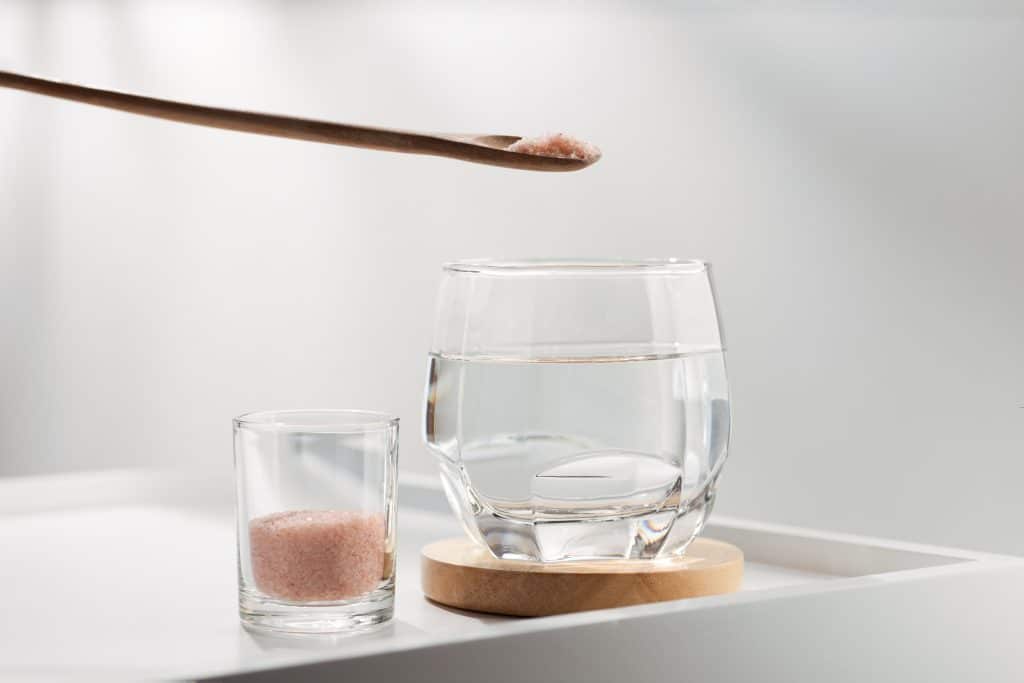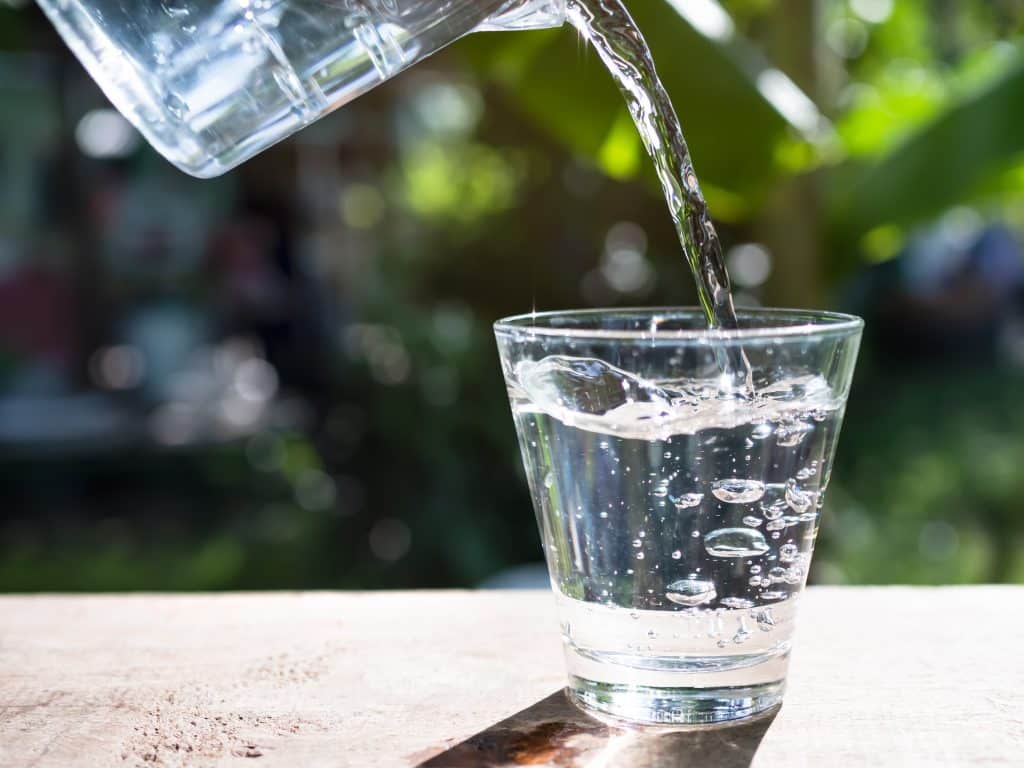Unlock the secret to optimal hydration and well-being by adding essential minerals to your water. While water alone is a cornerstone of good health, infusing it with minerals can elevate its benefits to new heights. This article delves into the science and benefits of enriching your water with minerals like calcium, magnesium, and zinc, among others. You’ll learn how each mineral contributes to your overall health, how to add them to your water, and the recommended daily intake. So, let’s embark on this journey to transform your ordinary glass of water into a nutrient-rich elixir for better health.
Contents
- Why Minerals Matter In Water
- Calcium – The Bone Builder
- Magnesium – The Relaxation Mineral
- Zinc – The Immunity Booster
- Potassium – The Heart-Healthy Choice
- Sodium – The Electrolyte Balance Master
- Iron – The Oxygen Carrier
- Combining Minerals – Synergy And Balance
- Get The Most From The Water You Drink!
- Related
Why Minerals Matter In Water

Minerals in water serve as more than just flavor enhancers; they are crucial for maintaining a balanced internal environment. Electrolytes like sodium, potassium, and calcium help regulate nerve function, muscle contractions, and even your body’s pH levels. When you hydrate with mineral-infused water, you’re not just quenching your thirst; you’re also nourishing your body at a cellular level.
But it’s not just about health; minerals can also improve the taste of your water. Minerals like calcium and magnesium contribute to a smoother, less acidic taste, making each sip more enjoyable. Now that you grasp the importance of minerals in water, you might be wondering which ones to add. Let’s dive into the specifics.
Calcium – The Bone Builder

Calcium is often hailed as the “bone builder,” and for good reason. This mineral is essential for the development and maintenance of strong bones and teeth. It also plays a vital role in muscle function, helping your muscles contract efficiently. When calcium levels in your body are optimal, you’re less likely to suffer from bone-related issues like osteoporosis.
Adding calcium to your water is a straightforward process. You can opt for natural sources like crushed eggshells or go for calcium mineral drops available in health stores. The recommended daily intake of calcium for adults is around 1000 mg, but this can vary based on age and health conditions. Next, let’s explore a mineral that not only aids in muscle function but also helps you relax.
Magnesium – The Relaxation Mineral

Magnesium is often referred to as the “relaxation mineral” because of its significant role in nerve function and muscle relaxation. It helps regulate neurotransmitters, which send signals throughout the brain and nervous system. A magnesium deficiency can lead to issues like muscle cramps, anxiety, and even insomnia.
To infuse your water with magnesium, you can use magnesium-rich mineral drops or add foods like spinach and nuts to your water for a natural boost. The recommended daily intake for magnesium varies between 310 and 420 mg for adults. Now that you know how magnesium can help you relax and improve nerve function, let’s move on to a mineral that boosts your immune system.
Zinc – The Immunity Booster

Zinc is a powerhouse when it comes to bolstering your immune system. It plays a critical role in cell growth and DNA synthesis and helps your immune system fight off invading bacteria and viruses. When you have adequate levels of zinc in your body, you’re better equipped to ward off illnesses and recover more quickly from infections.
Adding zinc to your water is relatively simple. You can use zinc mineral drops or opt for natural sources like pumpkin seeds and chickpeas. The recommended daily intake for zinc is around 11 mg for men and 8 mg for women. With your immune system in top shape, let’s turn the attention to a mineral that’s crucial for your heart’s health.
Potassium – The Heart-Healthy Choice

Potassium is indispensable for maintaining a healthy cardiovascular system. It helps regulate blood pressure, balance fluids, and even aids in muscle and nerve cell functioning. A potassium-rich diet can help prevent hypertension and reduce the risk of stroke, making it a heart-healthy choice you shouldn’t overlook.
To add potassium to your water, you can use mineral drops or go for natural sources like banana slices or orange wedges. The recommended daily intake for potassium is around 2,500 to 3,000 mg for adults. Now that your cardiovascular health is accounted for let’s explore a mineral that’s essential for maintaining your body’s fluid balance.
Sodium – The Electrolyte Balance Master

Sodium often gets a bad rap for its association with high blood pressure, but in moderate amounts, it’s essential for your health. It plays a crucial role in maintaining fluid balance and is necessary for muscle and nerve function. However, it’s important to note that too much sodium can lead to health issues, so moderation is key.
To add sodium to your water, you can use a pinch of high-quality sea salt. Be cautious with the quantity, as the recommended daily intake is about 2,300 mg, which is roughly one teaspoon of salt. With your electrolytes balanced, let’s delve into the final mineral on this list, which is vital for oxygen transportation in your body.
Iron – The Oxygen Carrier

Iron is a crucial component of hemoglobin, the substance in red blood cells responsible for carrying oxygen throughout your body. When your iron levels are optimal, your muscles and tissues function more efficiently, and you’re less likely to feel fatigued or suffer from anemia. Adequate iron levels also contribute to better cognitive function, enhancing your focus and memory.
To infuse your water with iron, you can use iron mineral drops or opt for natural sources like spinach and lentils. The recommended daily intake for iron is around 18 mg for women and 8 mg for men. With your body efficiently transporting oxygen and your mind staying sharp, you’re now ready to explore how to combine these minerals for maximum benefits.
Combining Minerals – Synergy And Balance

The concept of mineral synergy is fascinating and highly beneficial for your health. Some minerals, when taken together, can enhance each other’s absorption and effectiveness. For example, calcium and magnesium work well together for bone health, while sodium and potassium help maintain a balanced fluid environment in your cells. Understanding these synergies can help you get the most out of your mineral-infused water.
To create a balanced mineral cocktail for your water, consider using a multi-mineral drop that contains a mix of essential minerals. Alternatively, you can make your own blend by adding natural sources of different minerals to your water. Just remember to keep an eye on the recommended daily intake for each mineral to ensure you’re not overdoing it. With this knowledge in hand, you’re well-equipped to elevate your hydration game.
Get The Most From The Water You Drink!
Transforming your water into a nutrient-rich elixir is more than a health trend; it’s a lifestyle choice for enhanced well-being. This guide has illuminated the path to better hydration and overall health through the addition of essential minerals. Now, the power to elevate your hydration experience lies in your hands. Take the plunge and enrich your water with these vital minerals to unlock a new dimension of health and vitality.


